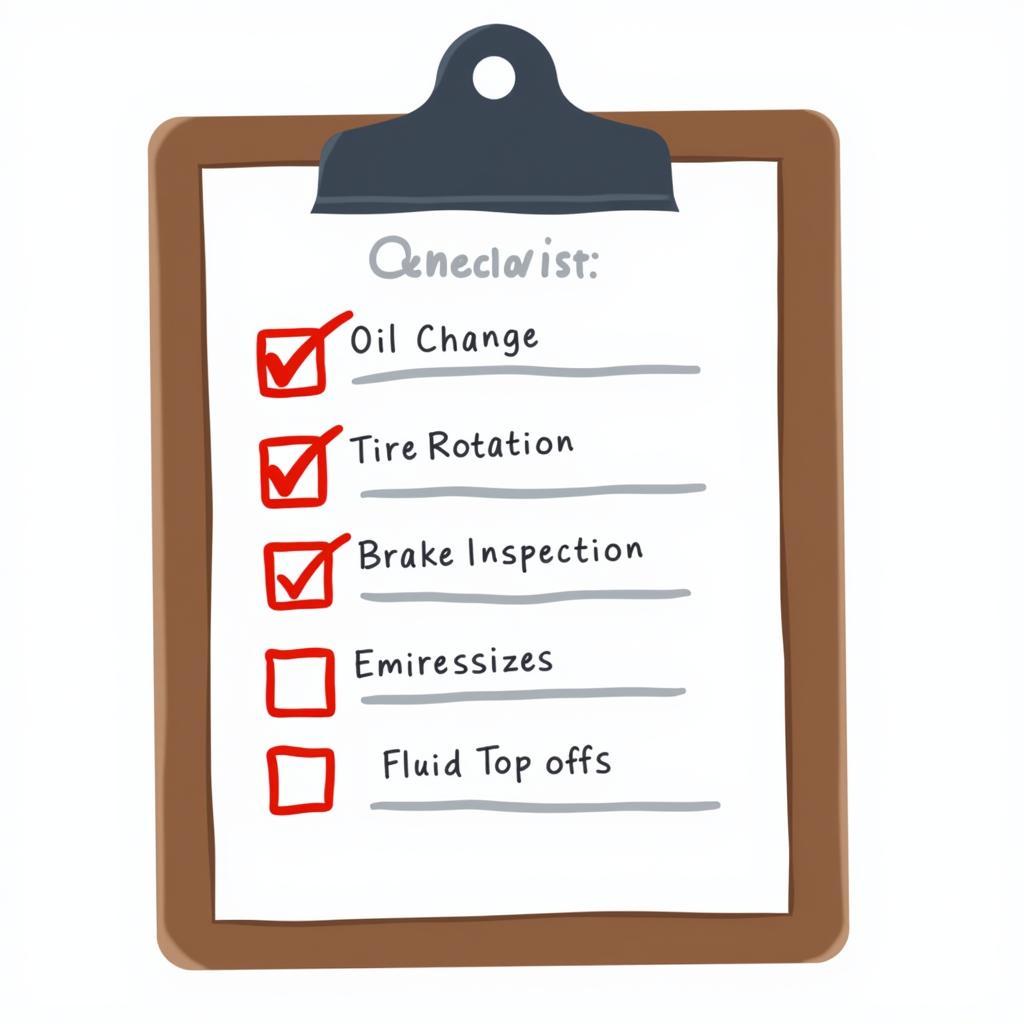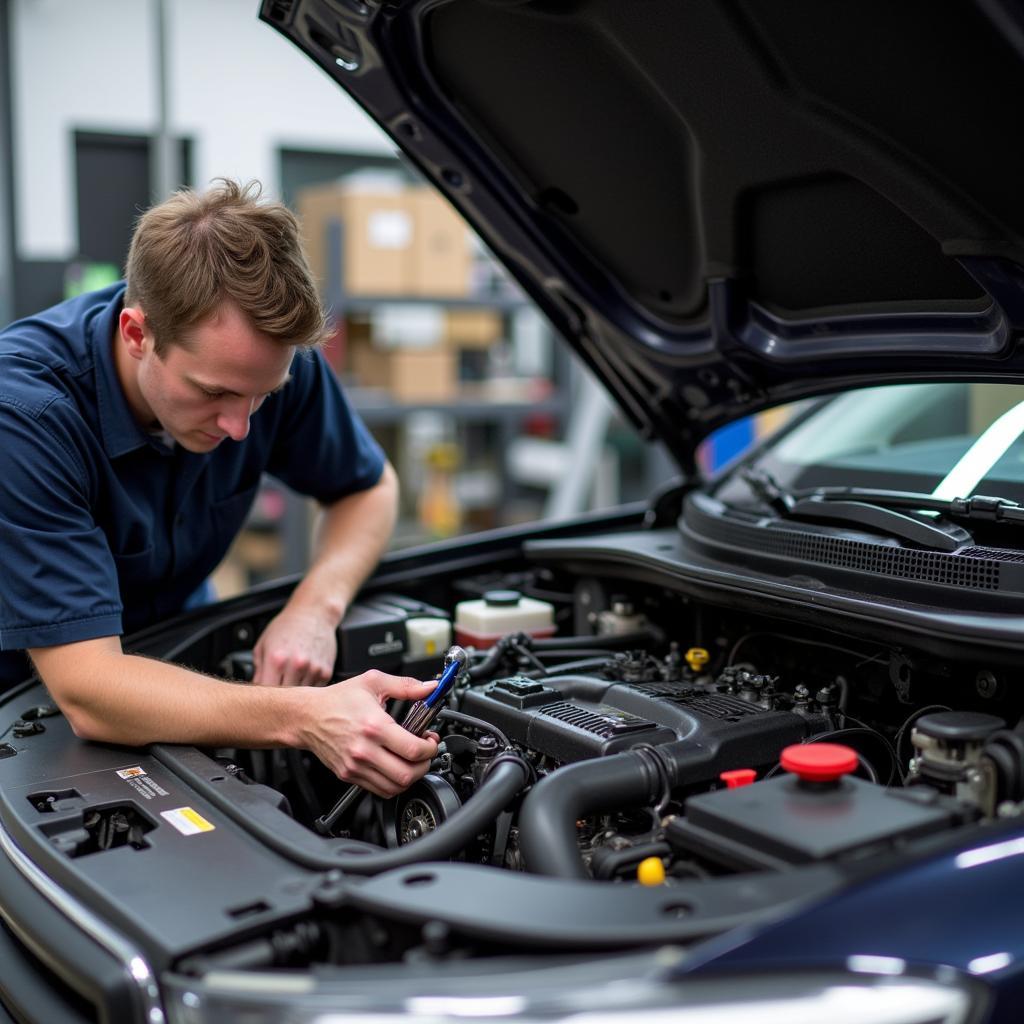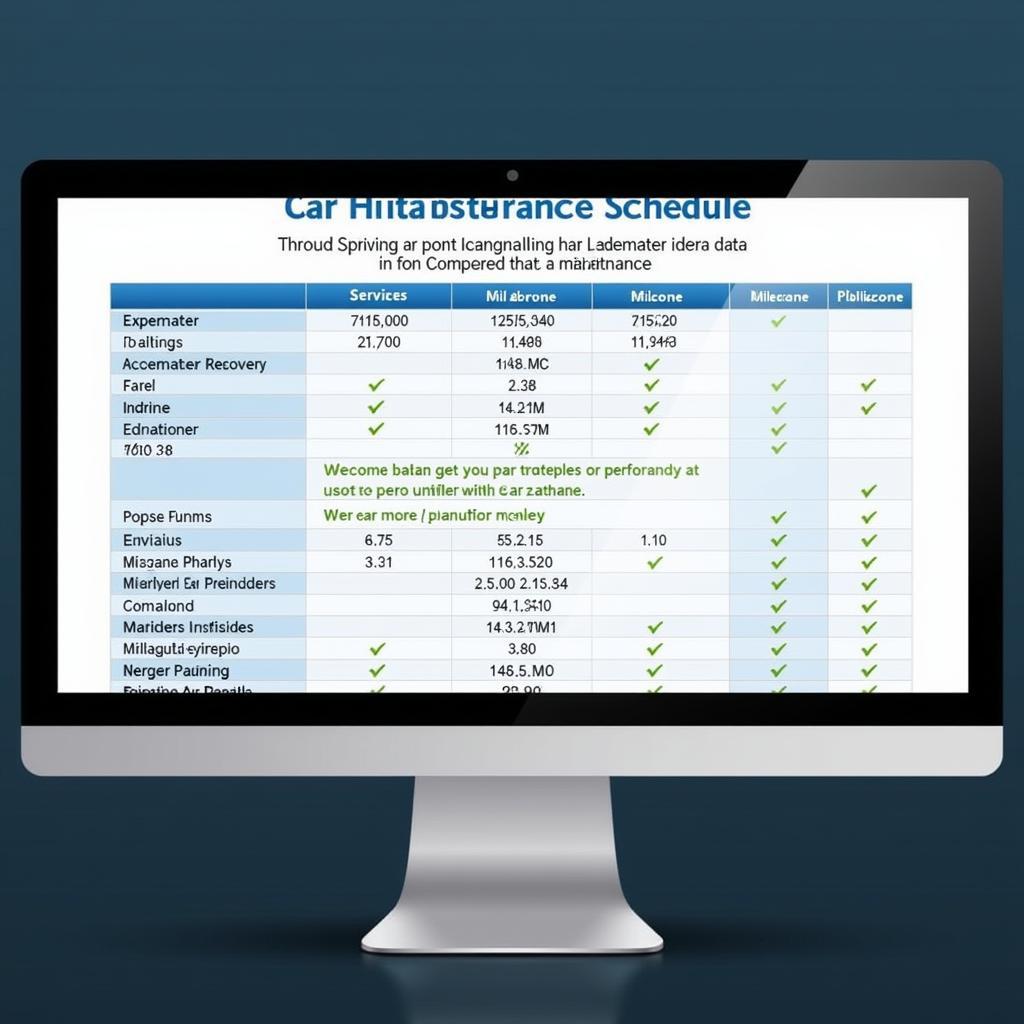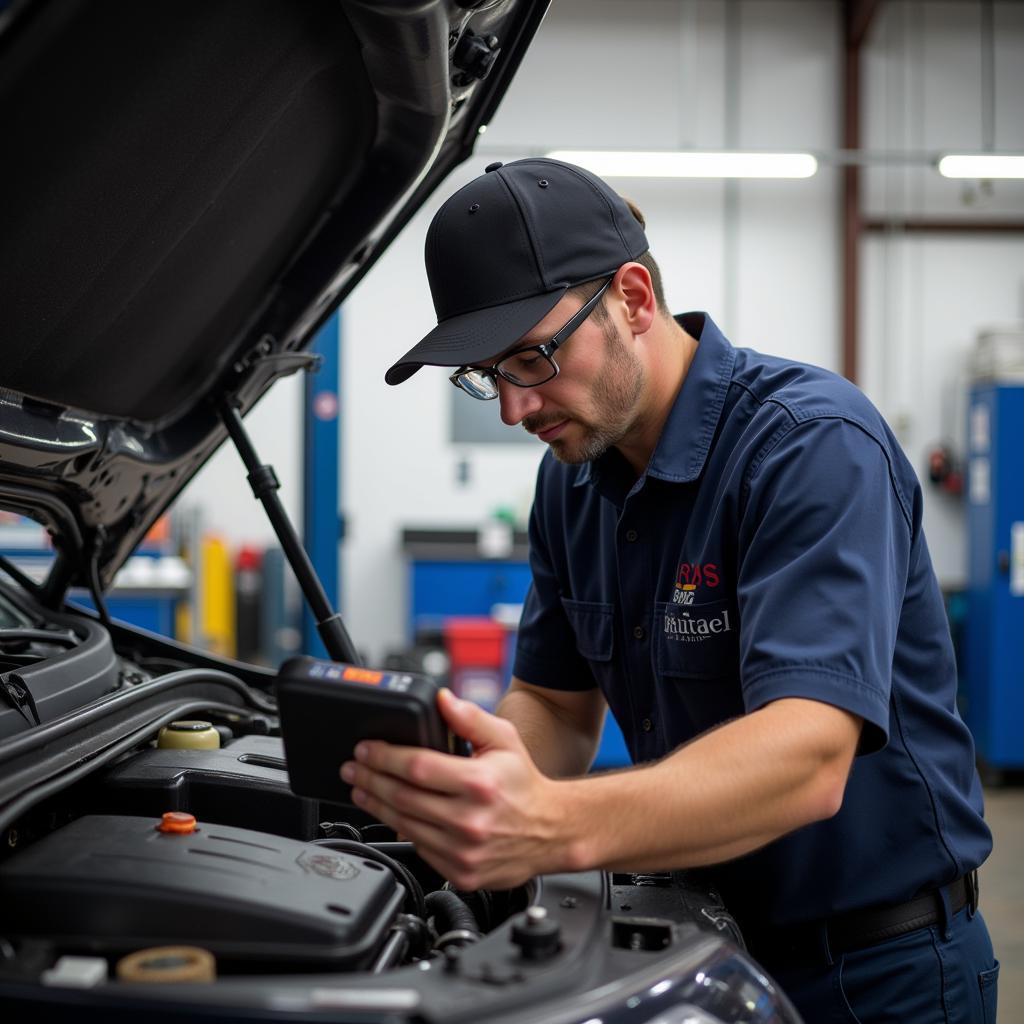What Does a Service Include on a Car?
A car service is essential for maintaining your vehicle’s performance, safety, and longevity. Understanding What Does A Service Include On A Car can help you make informed decisions about your vehicle’s maintenance and avoid unexpected repairs. This comprehensive guide will break down the key components of a car service, explaining what to expect and why it’s important.
Decoding the Car Service: A Comprehensive Overview
Regular car servicing is more than just an oil change. It involves a series of checks and procedures designed to keep your car running smoothly and safely. The specific tasks included in a service can vary depending on the vehicle’s make, model, age, and mileage. However, there are some standard procedures you can expect.
 Car Service Checklist
Car Service Checklist
Essential Checks and Procedures in a Standard Car Service
- Oil and Filter Change: This is the cornerstone of most car services. Old oil can become contaminated and lose its lubricating properties, leading to increased engine wear.
- Fluid Top-Ups: Various fluids are crucial for your car’s operation, including coolant, brake fluid, power steering fluid, and windshield washer fluid. A service will typically check and top up these fluids as needed.
- Tire Rotation and Pressure Check: Rotating your tires helps ensure even wear and tear, extending their lifespan. Correct tire pressure is vital for fuel efficiency and safe handling.
- Brake Inspection: Your brakes are critical for safety. A service includes checking the brake pads, discs, and fluid levels to ensure they are in good working order.
- Air Filter Replacement: A clean air filter ensures your engine receives the clean air it needs for efficient combustion.
- Battery Check: The battery provides the electrical power to start your engine and run various systems. A service will check its condition and charge.
- Lights and Electrical System Check: All lights, indicators, and other electrical components are inspected to ensure they function correctly.
- Exhaust System Check: A faulty exhaust system can lead to reduced performance, increased emissions, and potential safety hazards.
What Does a Full Service Include on a Car?
A full service is more comprehensive than a basic service and includes additional checks and procedures. This often includes a more thorough inspection of the engine, transmission, and other major components.
 Full Car Service Inspection
Full Car Service Inspection
Key Differences Between a Full and Basic Service
While a basic service covers essential maintenance tasks, a full service goes deeper, addressing potential issues before they become major problems. This includes:
- Spark Plug Replacement: Spark plugs ignite the air-fuel mixture in the engine. Worn spark plugs can reduce fuel efficiency and engine performance.
- Fuel Filter Replacement: The fuel filter removes impurities from the fuel before it reaches the engine. A clogged filter can restrict fuel flow and affect performance.
- Cabin Air Filter Replacement: This filter cleans the air entering the cabin, improving air quality and comfort.
- Detailed Inspection of Steering and Suspension: A full service includes a thorough check of the steering and suspension components for wear and tear, ensuring safe handling and a smooth ride.
How Often Should You Service Your Car?
The recommended service intervals vary depending on the manufacturer’s guidelines and your driving habits. Generally, a basic service is recommended every six months or 7,500 miles, while a full service is recommended annually or every 15,000 miles.
 Car Service Maintenance Schedule
Car Service Maintenance Schedule
What Does an A/C Service Include on a Car?
A specialized service, like an a c service for car, focuses on maintaining the air conditioning system. This involves checking refrigerant levels, inspecting components for leaks, and ensuring proper cooling function.
Conclusion: Keeping Your Car in Top Shape
Understanding what does a service include on a car empowers you to prioritize your vehicle’s maintenance and ensure its optimal performance and longevity. Regular servicing not only prevents costly repairs but also enhances safety and contributes to a smoother, more enjoyable driving experience. By following the recommended service intervals and addressing any issues promptly, you can keep your car running reliably for years to come.
FAQ: Common Questions About Car Servicing
- Q: What is the difference between a major and minor service? A: A minor service typically includes basic checks and fluid top-ups, while a major service is more comprehensive and includes additional checks and component replacements.
- Q: How much does a car service cost? A: The cost varies depending on the type of service, your vehicle’s make and model, and the location of the service center.
- Q: Can I service my car myself? A: While some basic maintenance tasks can be performed at home, it’s generally recommended to have your car serviced by a qualified mechanic.
- Q: What happens if I don’t service my car regularly? A: Neglecting regular servicing can lead to increased wear and tear, reduced performance, costly repairs, and potential safety hazards.
- Q: How do I know when my car needs a service? A: Refer to your owner’s manual for the recommended service intervals. You should also be aware of any warning signs, such as unusual noises, vibrations, or warning lights.
- Q: What should I look for in a car service center? A: Look for a reputable service center with qualified mechanics, transparent pricing, and a commitment to customer satisfaction.
- Q: What does an interim service include? A: An interim service is a more basic service than a full service and is often recommended for vehicles used in demanding conditions or for high-mileage drivers.
For further information, you can check out other related articles on our website.
Need assistance? Contact us via WhatsApp: +1(641)206-8880, Email: [email protected] or visit us at 456 Oak Avenue, Miami, FL 33101, USA. Our customer service team is available 24/7.

